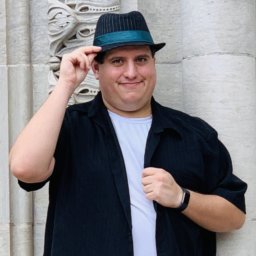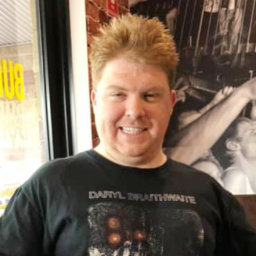In an earlier blog of mine titled “The Complex Relationship between Self-Awareness and Self-Advocacy,” I went into great depth about the relationship between self-awareness and self-advocacy. I asserted that if one is to advocate for themselves, or indeed at all, they need to have a measure of self-awareness allowing them to recognize both their own strengths and weaknesses, as well as the simple fact of reality that people on the spectrum are a tiny minority in the greater population of our world. I wrote that it is unreasonable to expect the rest of the world to kowtow to our every whim and that screaming and ranting and raving and demanding unreasonable things will only make us maligned in the eyes of the greater population we seek to help us. I observed that, unfortunately, many advocacy groups do this anyway and that we need to take action to curb the damage done by these overzealous “activists” that intend to speak for the rest of us. And I claimed that the absolute best way to advocate is to come at the problem from a position of strength, promoting one’s talents and abilities and showcasing what a boon people with autism can be to the community when they’re allowed to practice their talents, rather than demanding that we be compensated for our own shortcomings.
However, there is another method of advocacy that I only briefly touched upon in the previous blog that I feel needs to be understood in more depth. In the previous blog, I brought it up a few times as “self-actualization.” Self-actualization, or self-improvement, is one of the two great methods of self-advocacy. If the first method, described in the earlier blog, can be summed up as “promoting your strengths,” then self-actualization can be described as “overcoming your weaknesses.”
It is undeniable that being autistic comes with certain disadvantages. In the previous blog I referred to the quote of “different not less” and how I originally did not like the statement, but upon further reflection came to accept it. In the past I’ve also compared being autistic to being a specialized tool as opposed to a swiss army knife. It’s true that, say, a high-end electronic screwdriver can screw in a bolt much faster than a swiss army knife, for example. But on the other hand, an electronic screwdriver can’t so easily uncork a wine bottle, open a letter, pop a bottle top, or file your nails. And I discourage anyone who wants to try and prove me wrong on that last one.
As autistic people, there are things we cannot do as easily as neurotypical people. Many of us cannot pick up on social cues as easily, have trouble regulating our emotions, or have trouble translating thoughts into words or speech into comprehension. But that’s not even the end of the issues that people with autism may face. We also have to contend with, not just a lack of skills that other people seem to naturally have, but wholesale new issues that seem to crop up out of nowhere in people with autism. Extreme sensory sensitivity, such as sensitivity to sound, light, and touch is something that many of us contend with. Feelings of anxiety are incredibly common among people with autism, as are obsessive behaviors. Indeed, the number of troubles people with autism might find themselves saddled with are innumerable and may seem overwhelming.
Another analogy that I am quite fond of using when talking about people with autism is comparing them to characters from a Dungeons and Dragons game. For those who have never played Dungeons and Dragons, in some versions of the game, you build a character with a set number of points to distribute into various stats, such as strength, intelligence, agility, and constitution, as well as a set number of perks or “abilities” that you can take from a list in the player’s handbook. In some games, however, it is also possible to take flaws as well. This naturally seems counterintuitive to building a strong character, especially since taking flaws is entirely optional most of the time. Indeed, most players that I have met don’t opt to take flaws. But the upside to it is that if you take flaws, it grants you extra points to put into stats or perks. This means that a low level character can have absurdly good stats or abilities… if they’re willing to saddle their character with a bunch of really intense flaws that you can be certain will come up during the game and make things significantly more difficult for your character.
Autistic people are much like a character who’s player has decided to take flaws to boost our stats. On the one hand, we may gain intense focus and passion and talent, but on the other hand we are stuck with unregulated emotions, social anxiety, and sensory and comprehension issues.
And unfortunately, these issues will not simply go away. These are not flaws that are easy to just “get over” with enough time and patience. Nor are they merely annoying inconveniences as they happen in real time. These are persistent and incredibly stressful parts of autistic life that bother the people with ASD as much as they bother the people around them. And the sad truth is that these issues can snowball; as the people around those with ASD observe these flaws they may become unnerved and actively push people with autism away. In worst case scenarios, the cruelest among us might even make fun of them or discriminate them for it, which only leads to even more bitterness and more problems.
And sadly, while promoting one’s self from a place of strength (showcasing talents and abilities, and working within your strength to become a master of your chosen field) is a great way to move forward in the world and prove that there’s more to us than our flaws, it will not, on its own, be enough.
This is where self-actualization comes in. If we truly wish to make a mark on the world and prove to everybody that we are not all panicky, emotionally unstable, anxious, and overly sensitive, then we must not be panicky, emotionally unstable, anxious, or overly sensitive. If we are to earn the respect of the rest of the world, we must find the strength within ourselves to prove that we can overcome our own flaws.
To put it bluntly, we on the autistic spectrum must strive to be as neurotypical as possible.
I’m certain I must have raised some hackles with that statement. Many people on the spectrum take a certain measure of pride in being autistic, and these people get quite hot under the collar when people start talking about “curing” autism or people suggesting that they “shouldn’t be autistic.” And while that’s somewhat understandable depending on your perspective, the idea I’m promoting here isn’t all that new. In fact, we do it for children all the time and it’s almost universally seen as a good thing. After all, what are things like speech therapy and occupational therapy but learning improvement techniques that allow us to fit in better with neurotypical people and more capable of emulating them and interacting with them on their level?
And indeed, that’s just how it should be. As I’ve said in the past, it’s absurd to expect the overwhelmingly neurotypical population of the world to kowtow to our every whim and ignore our every folly. To do so would only invite ire. Furthermore, it would be disadvantageous for both the people on the spectrum as well as the neurotypicals to try and get around living together by fashioning some kind of insular, segregated society of people with ASD so we don’t have to put up with each other. Depending upon which side manages such society, one side would inevitably end up oppressing the other. Indeed, the only alternative is for both people with ASD and neurotypicals to live together. And for us to do that effectively, we cannot allow our flaws and foibles to get in the way by putting off and scaring away the neurotypicals that run the world. If I may be allowed some overly dramatic language for a moment, it is a neurotypical world and we must live in it.
And so, the best way that we can live in it is to be self-aware of both of our strengths and weaknesses. As I said in the previous blog, we must promote our strengths, certainly. The importance of that cannot be overstated. And what we have to offer the world is monumental. But it also cannot be denied that if we wish to live in this world, we must also make the effort to improve upon our weaknesses.
Thankfully, people are already lining up to help us… at least in our childhoods. The amount of services offered to children with disabilities, especially within the past decade or so, is astronomical. Special education programs have been improving slowly, but very noticeably and are helping more children with disabilities than ever. Speech and occupational therapies are available even for children of low socioeconomic status and children are getting chances that would have been unheard of just two decades ago.
Unfortunately, nearly all of this aid drops off when children become adults. And despite programs like Spectrum Fusion cropping up recently, nearly all other therapies and programs stop bothering to help us when we grow up. Therefore it is up to us to improve ourselves and self-actualize to become the very best that we can be. It is up to us to devise and employ strategies to help train ourselves to become more capable of tolerating and living in the conditions of this neurotypical world. Because if we don’t we will find ourselves fading into obscurity; living by meager means if any at all, with little social contact as we sequester ourselves away from the stimuli that hound us so.
Surely this all seems very fatalistic and discouraging, but I assure you it is not meant to be. Because while this is a serious matter, it is by no means a hopeless one. History is full of people on the autistic spectrum who overcame their flaws and disadvantages and went on to become incredibly prominent, successful people. History is full of people like Dan Akroyd, Tim Burton, Bill Gates, and even Albert Einstein, who were capable of overcoming their issues and making something great of ourselves. Even the great Temple Grandin, who started her life with very severe and challenging problems managed to overcome them and make something great of herself, so don’t think for a second it isn’t possible. And for those who take some measure of pride in being autistic and don’t want to become one of the “NT’s,” you don’t need to worry; overcoming their issues hasn’t made them any less autistic, it’s simply made them self-actualized. It’s made them the best autistic people that they can be: People who are talented, focused, passionate, and driven, who are yet able to meet the world and the rest of society on its own terms and handle it with ease.
And if these people can do it, then don’t think for a second that you cannot. As I just said, even Temple Grandin, whose issues were so severe that it was suggested when she was a child that she be institutionalized for the rest of her life, managed to devise strategies and methods of working around her issues and flaws that she became capable of meeting society on its own terms.
The first step is to be self-aware enough of your own flaws: These things that bring you so much stress and pain that they seem insurmountable. I cannot overstate the value of introspection. Sit for a while and think on the problems you have and what strategies you might be able to employ to work through them. And if the roadblock in your path is truly too difficult to punch through, then think of how you might be able to build some kind of walkway around it instead.
Some issues might have easy fixes. For example, if you are incredibly light sensitive, you might curb that by wearing a hat or sunglasses. If you’re noise sensitive, you might dampen the noise around you by buying a comfortable pair of headphones. I myself am very touch sensitive, especially to clothes made of rougher fabrics, so I go out of my way to buy clothing made of specific fabric blends that allow me to more comfortably function and stop squirming and scratching at myself every moment of every day.
Other issues, such as emotional regulation, anxiety, and obsessive tendencies might be harder to curb. These issues might take longer amounts of time to parse through and come up with a solution as you introspect over them, and it might take time to implement them once a solution presents itself. It will not be easy by any stretch of the imagination, but it is absolutely possible. I encourage anyone with difficult issues to look up Temple Grandin and learn her story. If she can do it, we can do it.
And the results cannot be overstated either. Not only will the neurotypical people that we must inevitably live and deal with be less inclined to push us away when we have devised strategies for getting around our most visible flaws, they will be more inclined to help us with the flaws we have not yet managed to deal with and still could use a hand with. They will also be more inclined to listen to us when we ask for a moment of their time so that we can showcase the amazing talents, passion, and focus that come with being on the spectrum.
And this self-improvement isn’t just for the benefit of the neurotypicals. This isn’t us kowtowing to them the same way I’ve said that they should not kowtow to us. On the contrary, we do this not just for them, but also for ourselves. After all, surely finding ways to deal with, work around, and minimize the emotional problems, anxiety, uncontrolled obsessive tendencies, and sensory issues that autism brings would allow us to feel better about ourselves as well? Imagine being able to walk into a store and not feel anxious about talking to strangers. Or to be able to go to that party and not have a meltdown from all the overwhelming stimuli? There are things that we can do and experience that we would not have been able to before, without the monkey on our backs constantly making us uncomfortable, irritated, and overwhelmed.
It’s absolutely a process. And it will take time. And there will be stumbling blocks where we trip and fall. We might even backtrack at times. But if we keep working at it and keep moving forward, I absolutely believe we can make it.






